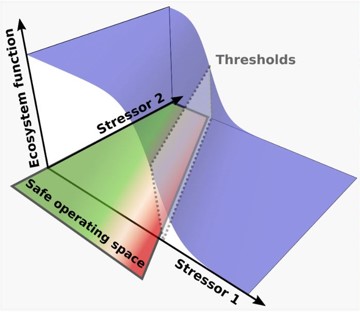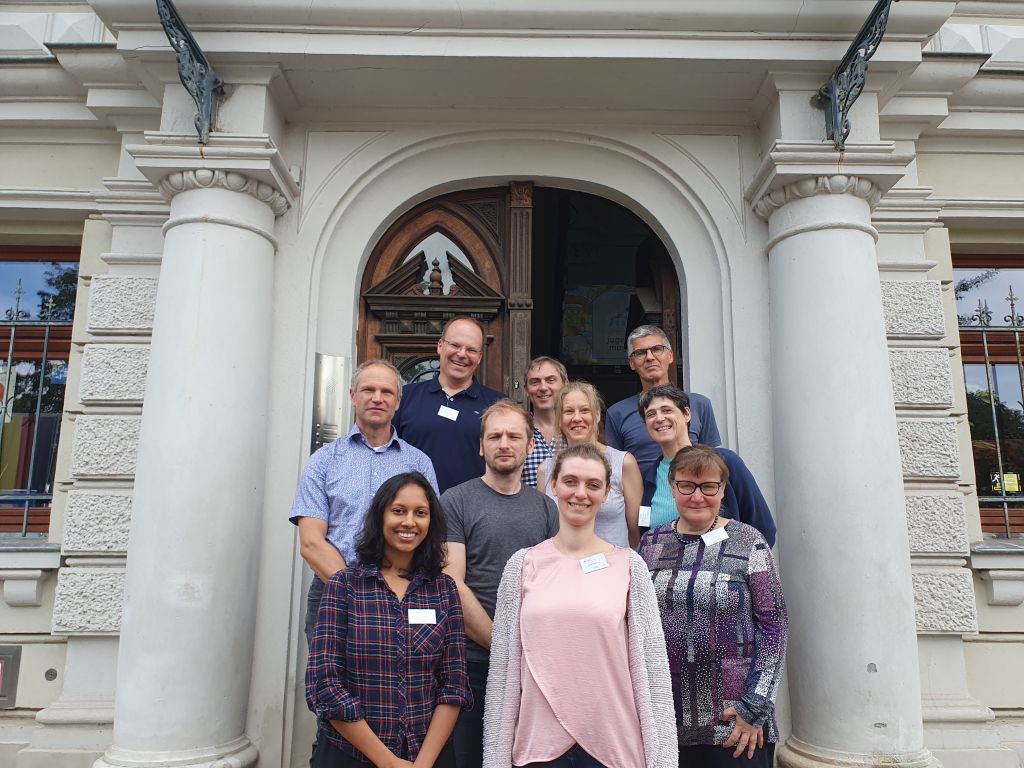OperaSOS - Operationalizing the ‘Safe Operating Space’ concept for a functional management of freshwater ecosystems under global change

The OperaSOS project aims to operationalize the SOS concept for stream ecosystem functioning by accounting for the variation in agricultural land use intensity in catchments. The project combines fieldwork with data analysis in a theory-driven approach to facilitate adaptive land use management of streams and rivers. We focus on agricultural land use, as the conversion of pristine areas and the intensification of pasture into arable land still constitute the most important pressure on terrestrial and freshwater ecosystems. The project quantifies responses of ecosystem structure and functions along the entire agricultural gradient from pristine to intensive crop farming in river catchments across Germany. We will develop an agricultural Land Use Intensity index for Stream ecosystems (LUIS) for this. By testing the predictive power of LUIS for the stream network-dependent ecological status (ecosystem structure) and ecosystem functioning, we will be able to upscale ecosystem functions based on LUIS to large scales and scenario analysis for land management practices.

Our team:
Dr. Devanshi Pathak
Postdoctoral scientist - development of the LUIS index and testing its predictive power for stream ecosystem status on large scales, Dept. Aquatic Ecosystem Analysis and Management
MSc Alina Kindinger
PhD student – quantification of ecosystem functioning (e.g., trophic transfer efficiency) in the context of the LUIS gradient, Dept. River Ecology
PD Dr. Patrick Fink
Project coordinator, Dept. Aquatic Ecosystem Analysis and Management, and Dept. River Ecology
PD Dr. Mario Brauns
Project coordinator, Dept. River Ecology
Further consortium scientists (PIs, in alphabetical order):
• Prof. Dr. Dietrich Borchardt, Dept. Aquatic Ecosystem Analysis and Management
• Dr. Olaf Büttner, Dept. Aquatic Ecosystem Analysis and Management
• Prof. Dr. Karin Frank Dept. of Ecological Modelling
• Dr. Ulrike Scharfenberger, Dept. Aquatic Ecosystem Analysis and Management
• Dr. Christian Schmidt, Dept. Hydrogeology
• Dr. Mechthild Schmitt-Jansen, Dept. Bioanalytical Ecotoxicology
• Dr. Tom Shatwell, Dept. Lake Research
• Prof. Dr. Markus Weitere, Dept. River Ecology
• Dr. Soohyun Yang, Dept. Aquatic Ecosystem Analysis and Management
